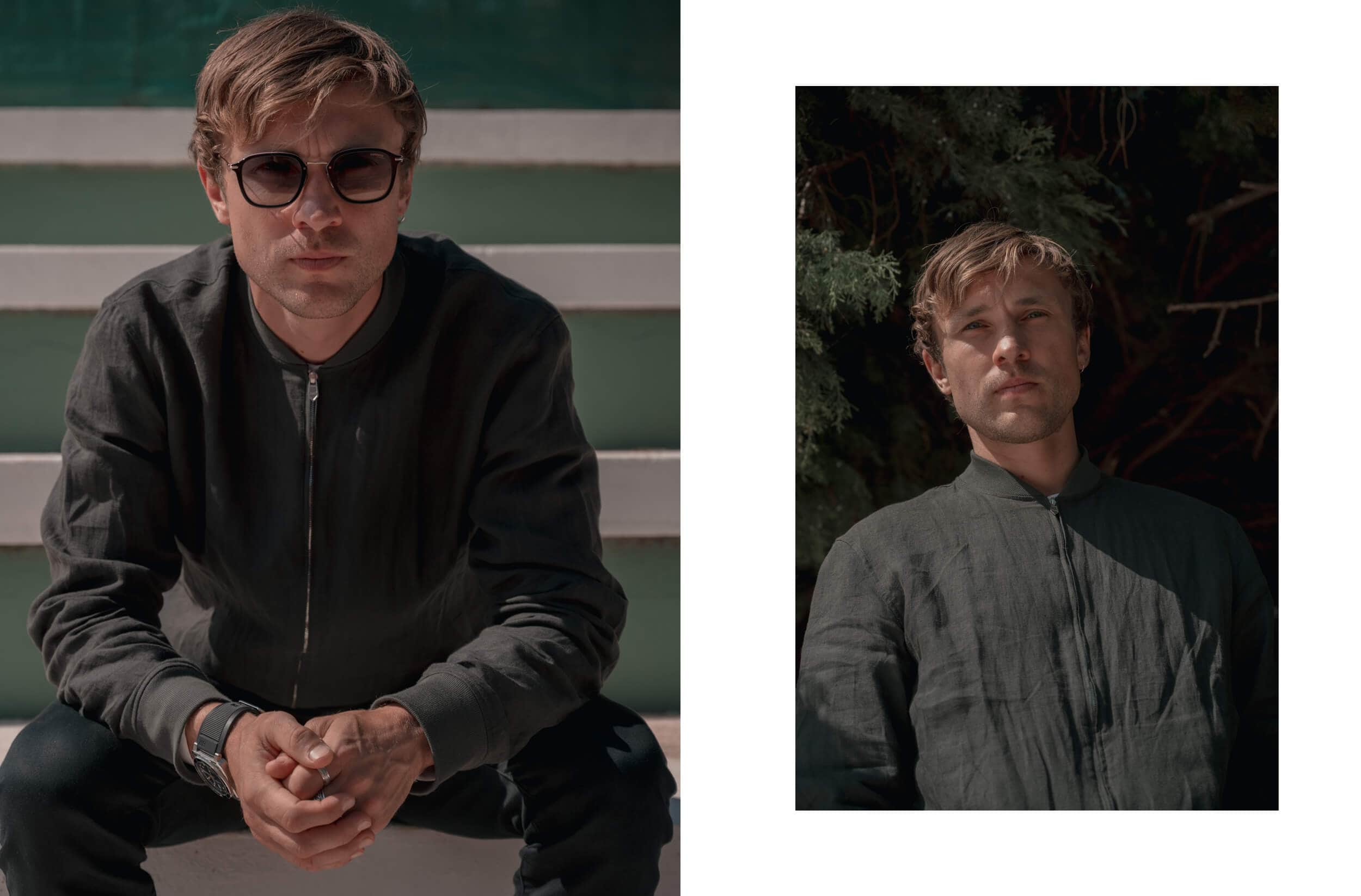There’s a road that seems endless.
There’s a landscape made of nothing.
And following that road that takes who knows where, we find Mark walking, with his love for poetry, for love itself, and for freedom, that kind of freedom that allows you to be who you are, in all your complexity.
The character of Mark in “Land of Dreams” is played by William Moseley, who seems to have walked that path himself, to find himself again and realize that everyone is valuable in their own way. We sat with William to talk about his approach to the script, and how it is unapologetic in showing the turn that the world could potentially take, the truth he’s discovered about himself, and his desire to keep making artistic films, alongside fun ones.
Without forgetting a good tea bag to always carry with him along that journey through cinema, poetry, fears, and dreams: in other words, through life.
What was your first reaction when you read the script, and what was the first question you asked the director?
When I read the script, first of all, I really liked all the political commentaries, I liked the way it was a meditation on a lot of different political subjects, on immigration, on the socio-economic differences between people, the policing of people’s lives and dreams, all different subjects and things I believe in as a person. The world has been going in a very unregulated way, the way that we’ve come to unregulated social media where people can put up anything and anyone can look at it and anyone can take what they want from their life. Us, for example, having this conversation right now, if we mentioned blue dresses, suddenly I imagine my phone would start showing me blue dresses and where to buy them, and your phone too! [laughs] That’s crazy, that these phones that we use are literally listening to our conversations, and so, in 30 years, if it were still an unregulated space, who’s to say why they wouldn’t regulate also our dreams and try to get control of them and try to squash them because that’s the freedom that we have: we have a freedom to dream, freedom to be whoever we want to be, to stand for whatever we want to stand for. I liked that the film was unapologetic about where the world could potentially go.
And now I will probably get lots of ads about blue dresses after this… but that’s okay!
How did you step into Mark’s shoes and what was the main challenge you had to face? How did you overcome it?
It’s a lovely question! He’s quite a complex character, and at the very beginning, I think, everyone thinks, “This guy’s a weirdo,” but what I liked about Mark was that he doesn’t follow any of the parameters that are set to people, and they’re all parameters that exist but we don’t even know they’re existing, and they’re restraining us, they’re holding us back. He’s not perfect, he has a lot of problems, in a way, he’s so liberal that he almost has a dark side to that, as well, and an anti-world that also isn’t great, he’s multi-layered. I grew up in a hippie town, in a country full of artists and musicians, and we were always doing interesting things: I knew those people would have liked Mark, and I knew they were real people and this was a real person, so I thought of these people that I knew growing up, and I channeled them through myself to play him as true as I could.
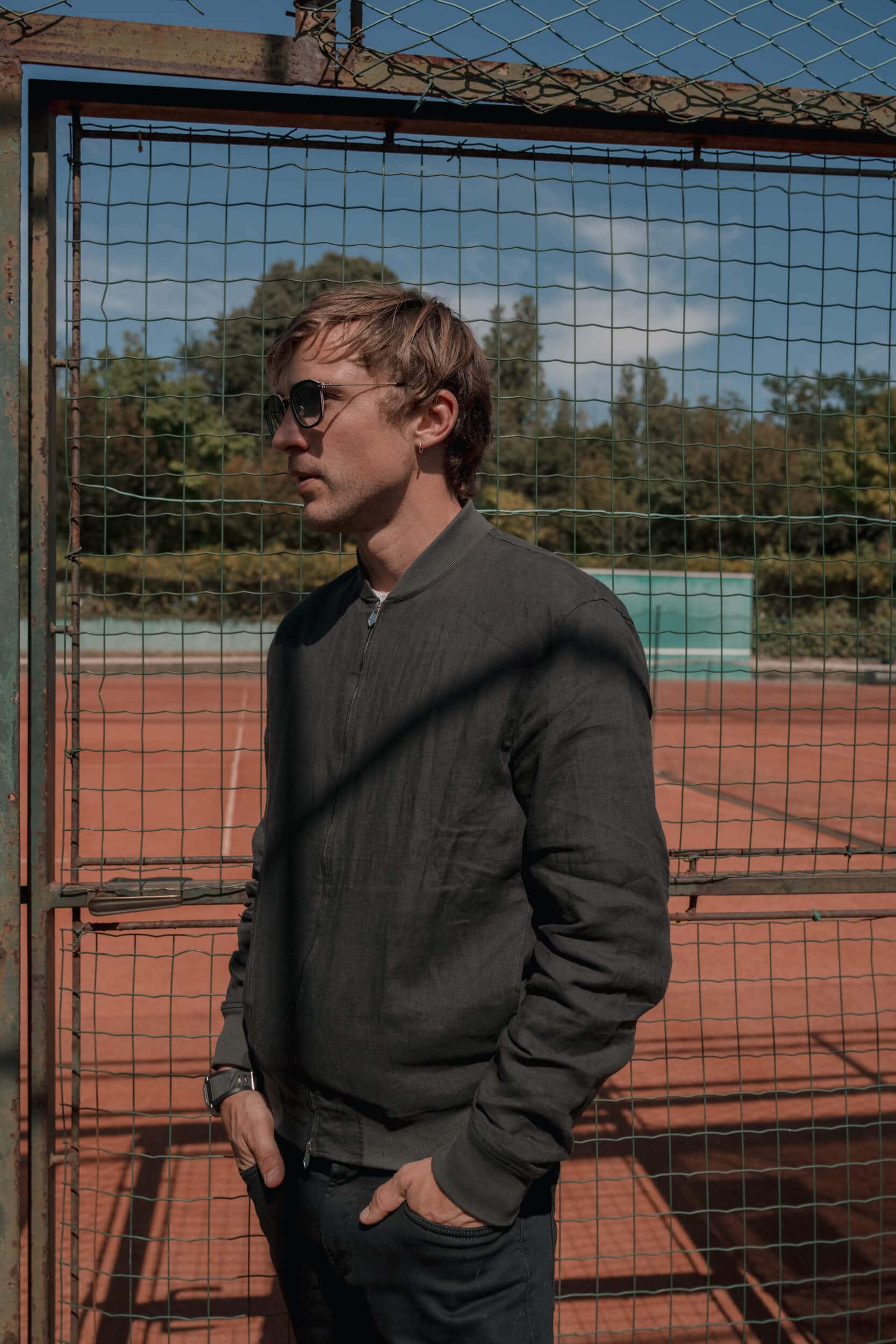
“We have a freedom to dream, freedom to be whoever we want to be, to stand for whatever we want to stand for. I liked that the film was unapologetic about where the world could potentially go.”
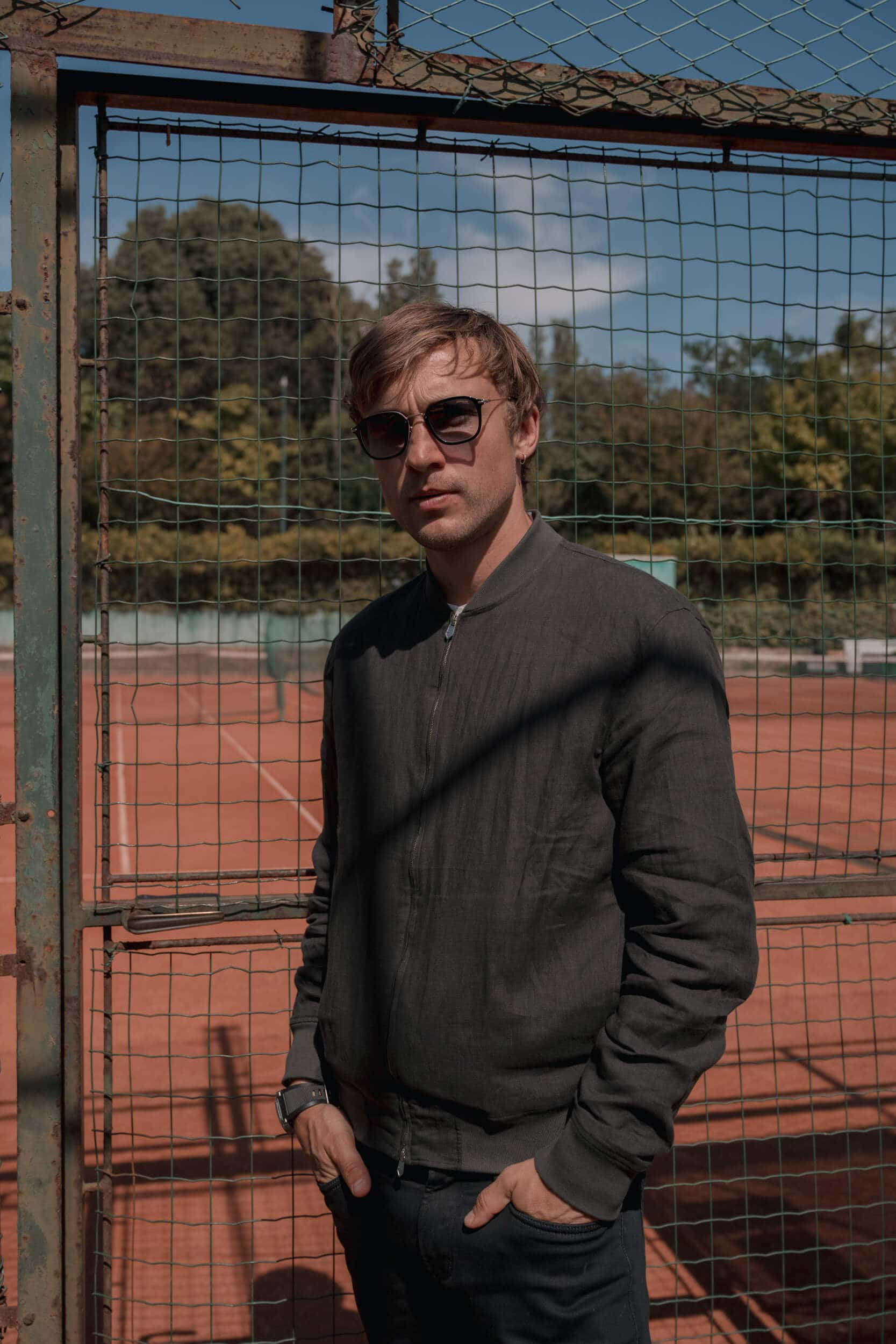
It’s great that you had an experience you could take inspiration from.
How did you work with Matt Dillon, instead, on the dynamics between your two characters?
There’s a massive difference between Alan and Mark, he’s the ultra-masculine representation of America, while, to me, Mark was always like a sort of “Bob Dylan” kind of American, a poet, a feminist, into the romanticism of the human spirit, whereas Alan is someone’s who’s seen it all, and he’s very cynical about society, not that he’s wrong. About working with Matt, I’ve seen his movies and I know Matt is a real American, he’s a really brilliant actor and a really strong guy, and I knew that if he just said these lines without his artistic self – which is what he did because he’s a very sensitive artistic person –, if he took that side of himself out, and he was just the strong version of himself, then I would be fine because I would just be a “Bob Dylan” kind of aspect and we would play against each other.
The movie is also about knowing yourself, knowing where you come from, where you’re going, and it’s also about being part of a society and how, sometimes, we pretend to be someone else to be part of it. Has this aspect influenced your approach to your character? Have you ever experienced that kind of feeling, of need to pretend and respect society’s rules to fit, before?
Yeah, I thought it for a long time. I’ve lived in LA for 10 years and I’ve often felt like I didn’t fit in, I’ve often felt like an outsider myself, and that can be very hard when your young because you don’t have the maturity to understand that there’s nothing wrong with you, and not to think what everybody else thinks. I struggled with that as I thought: “Maybe, if I’m more like this…” or “It would be better if I’m more like that, even for my career,” “This is what an actor should be, this is what I should be like.” And then, as you get older, you just begin to realize that your person, the way you think, is valuable as anybody else’s, that you must value yourself. Then, I actually left LA and I moved back to the countryside where I grew up: I just wanted to be myself and not be anything other than who I am. I’m glad I’m that person now.
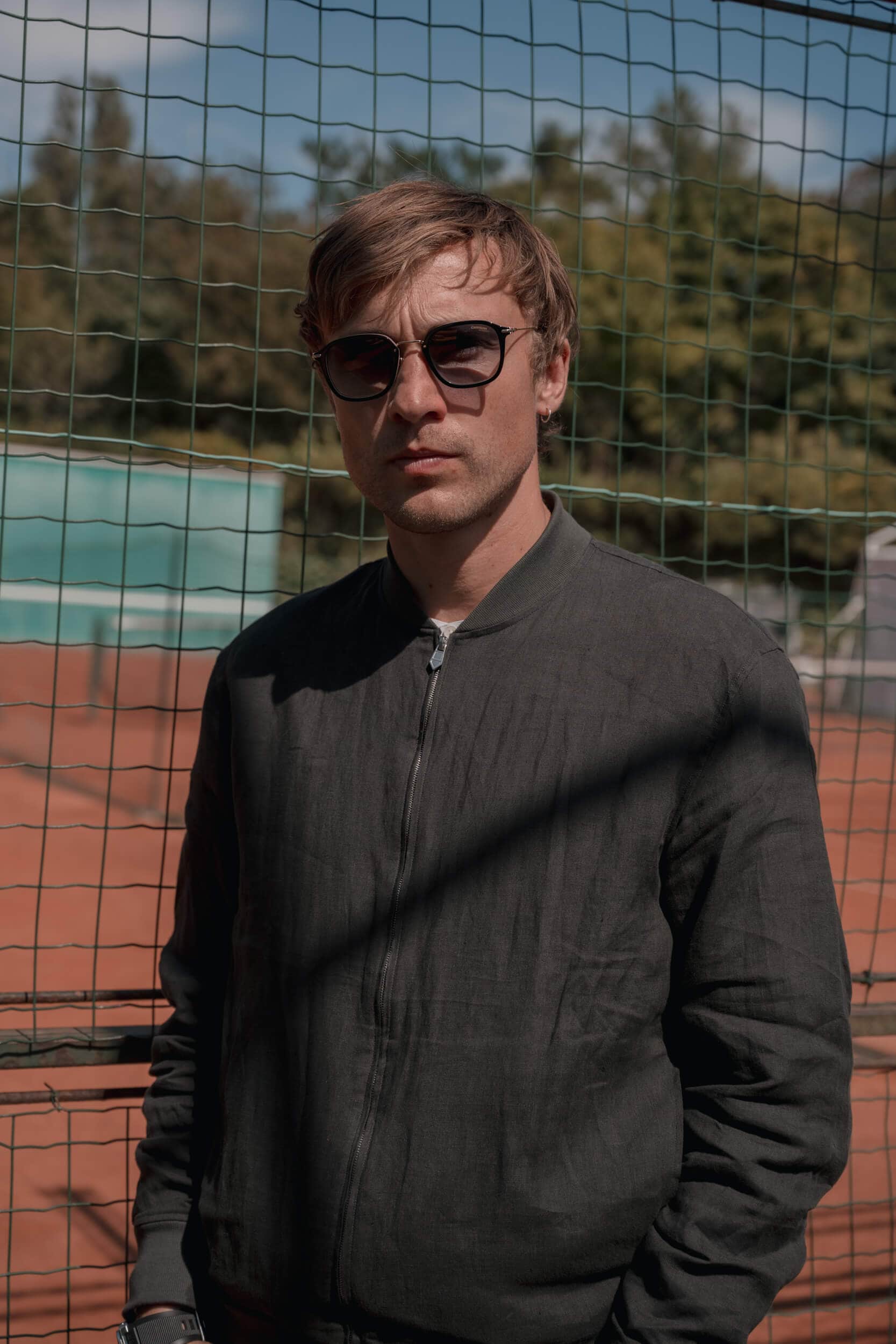
“I’ve lived in LA for 10 years and I’ve often felt like I didn’t fit in, I’ve often felt like an outsider myself, and that can be very hard when your young because you don’t have the maturity to understand that there’s nothing wrong with you, and not to think what everybody else thinks.”
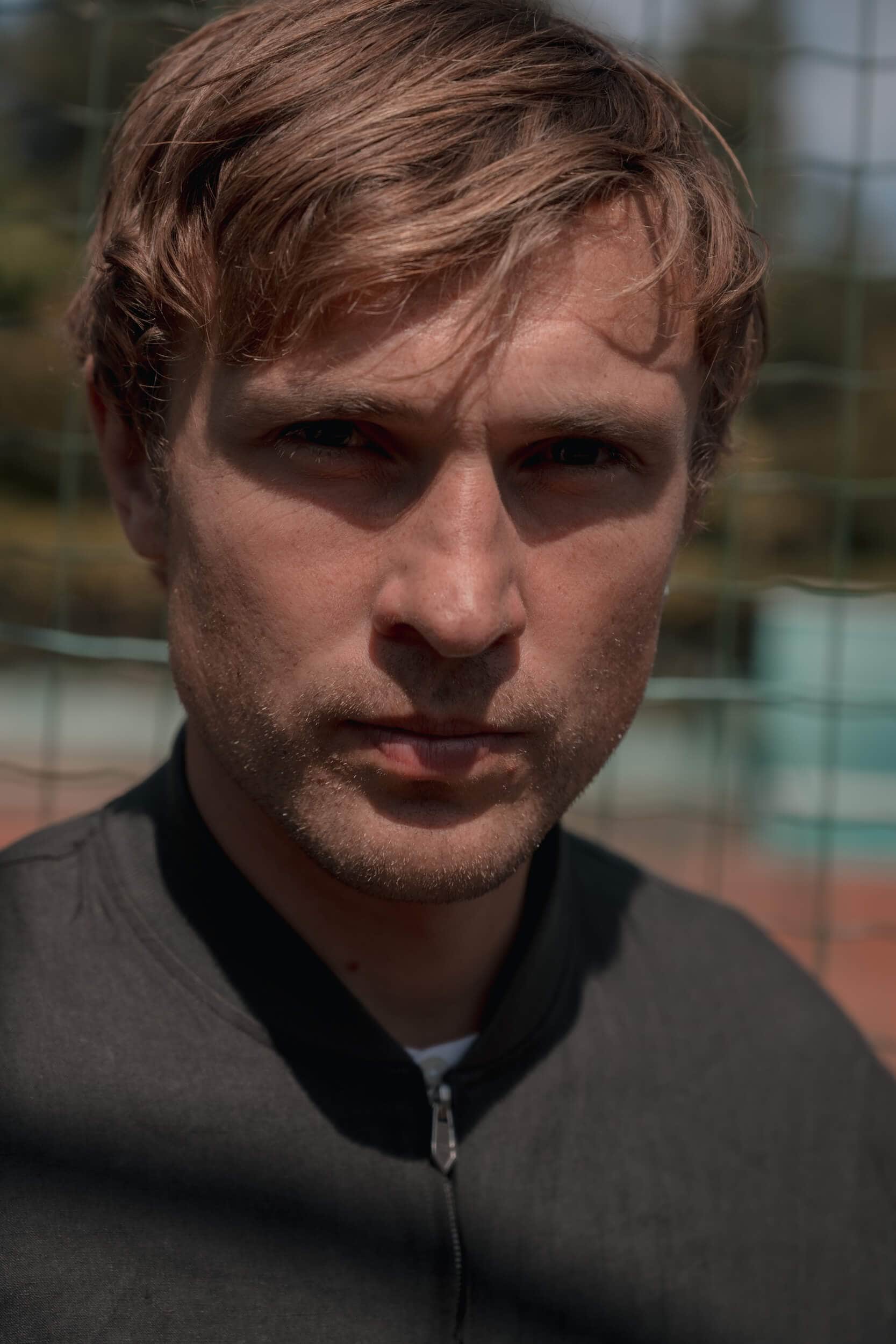
You’ve found yourself again, that’s the most important thing, I believe.
Did you discover something new about yourself through this experience?
I did. I discovered the truth, to be honest with you. This is what everybody thinks, and it’s funny, it’s an old thing, but I really thought that, if I had a lot of money, I’d be happy, and I know it’s crazy, but I really thought that kind of thing, and then I had a lot of money and thought, “Well, I’m not happy!” [laughs] It’s like something out of a fairytale, money helps your life, it can make you share beautiful things with your family, but it can’t really be your focus, you have to focus on what enriches your soul as opposed to your bank account! [laughs] So, I’ve learned that one now, which doesn’t mean I don’t want to have money, of course, I do, I want to live, but I have a different perspective on it, now.
At some point in the movie, you and Sheila say that “dreams are just stories.” What are the kinds of stories that you dream to tell or to be a part of?
You know, when I was going through this transition in my life, I wanted to make something artistic, I’d never made something artistic. When I got on the phone with Shirin [Neshat], and I saw her work, Jean-Claude Carrière’s screenwriting, and I knew that Matt Dillon was in it, and in my mind, they all were very well-respected artists that I loved, so I just wanted to be a part of the movie more than anything, and I worked really hard, and then Shirin made me be part of the film.
So, I made an art movie, and I watched it last night and thought: “I can be proud of this movie, this is something I believe in, that represents me, my soul, my sensibility.” And I want to keep making artistic films, so I’m going to keep making beautiful films. The first time I saw “The Motorcycle Diaries” with Gael García Bernal, I loved it, I loved the message in it, I loved the movement in it, and I’ve seen Sorrentino’s movies, Almodóvar’s, Alfonso Cuarón’s. It doesn’t mean I just want to make artistic films, I want to make fun films as well, but those can really be watched again and again and again and you can always pull something new out of them, and I’d love to keep making films like that. That would be my goal, to keep making artistic films, alongside fun films.
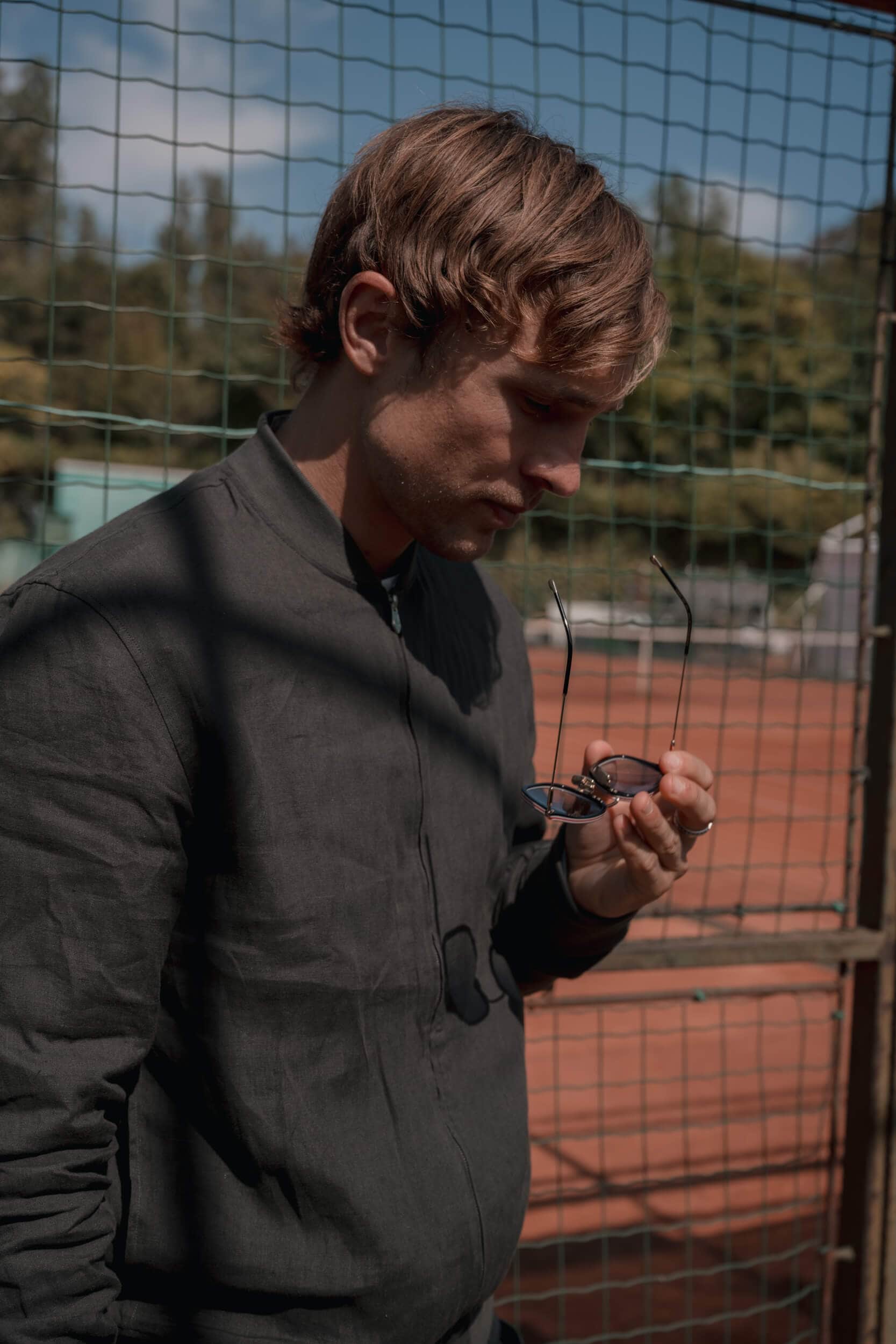
“That would be my goal, to keep making artistic films, alongside fun films.”
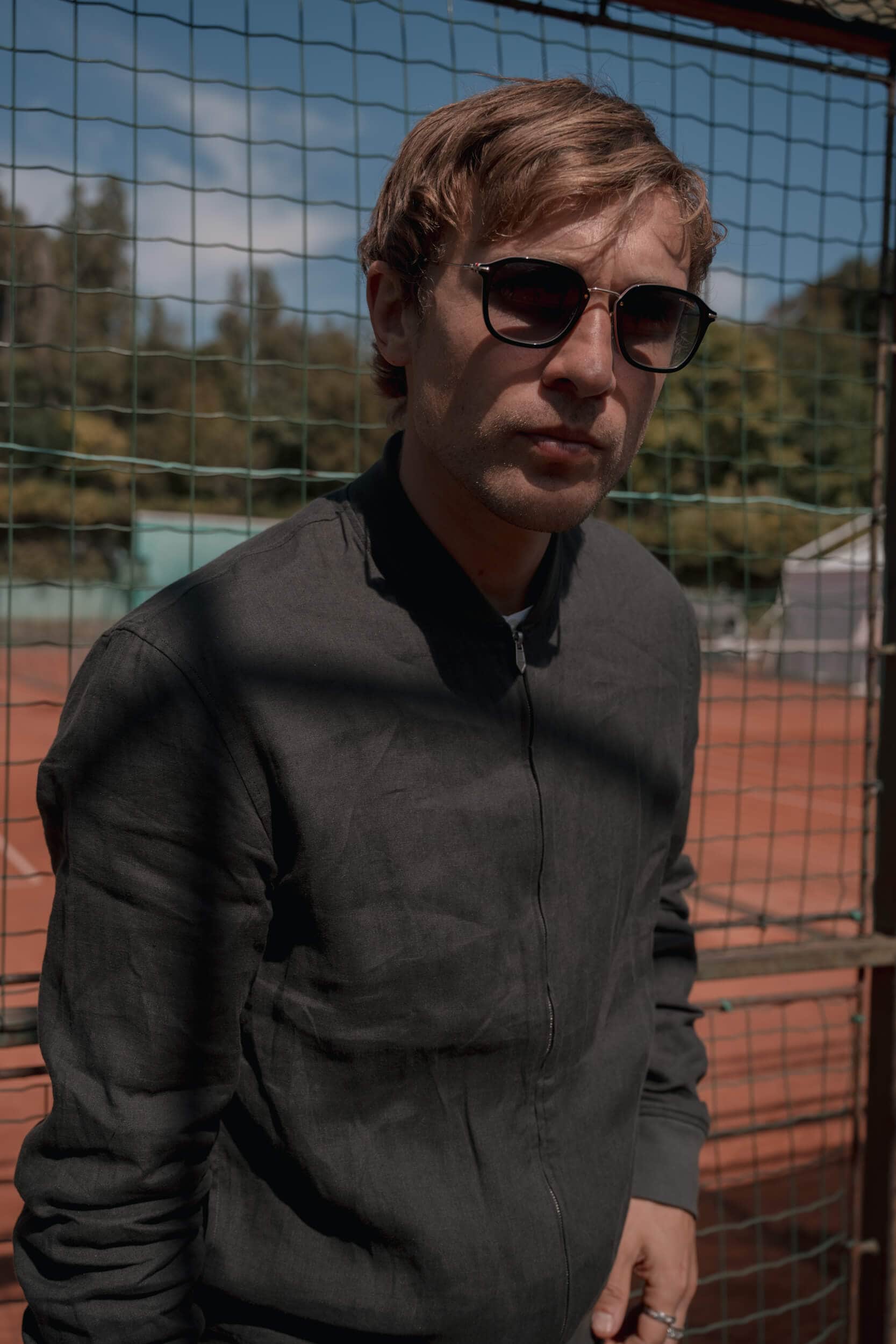
The movie is also about freedom, tackled in a very deep way. What does freedom mean to you, work-wise, as well?
Freedom is a funny thing because even if you’re the freest person, you can still be imprisoned in your own mind. Freedom means that you give yourself liberty, right? You give yourself permission to be free, to be habiting your own liberty. For me, that means to do my best to stay away from toxic people, people who pressure you, and try to oppress you. Anybody who feels oppressed, or put down, or their spirits being downed by someone, should stand up and say, “I won’t put up with this anymore,” and leave. If you’re being oppressed, if you’re being downed, if your spirits, your dreams, or whatever are being downed, especially if you’re a teenager and you can’t get out of the situations, but your parents know you can get out at some point and you can be free; there’s a world out there, the universe will help you, and you can do good in the world, be around good people, and be yourself, follow your truth.
Since your character writes poems, do you have a favorite one?
Yeah! It’s funny because in the film I say this poem, “If you can keep your head when all about you / Are losing theirs and blaming it on you / If you can trust yourself when all men doubt you / But make allowance for their doubting too,” but it was me saying that, it wasn’t in the script, that was just me saying that as I was walking along. I said to myself, “maybe you could think about reciting a good poem,” but then I thought, “What if I just recite a poem that I like?” So, I just did that in the film, and that’s one of my favorite poems, I love that poem, so I did that one.
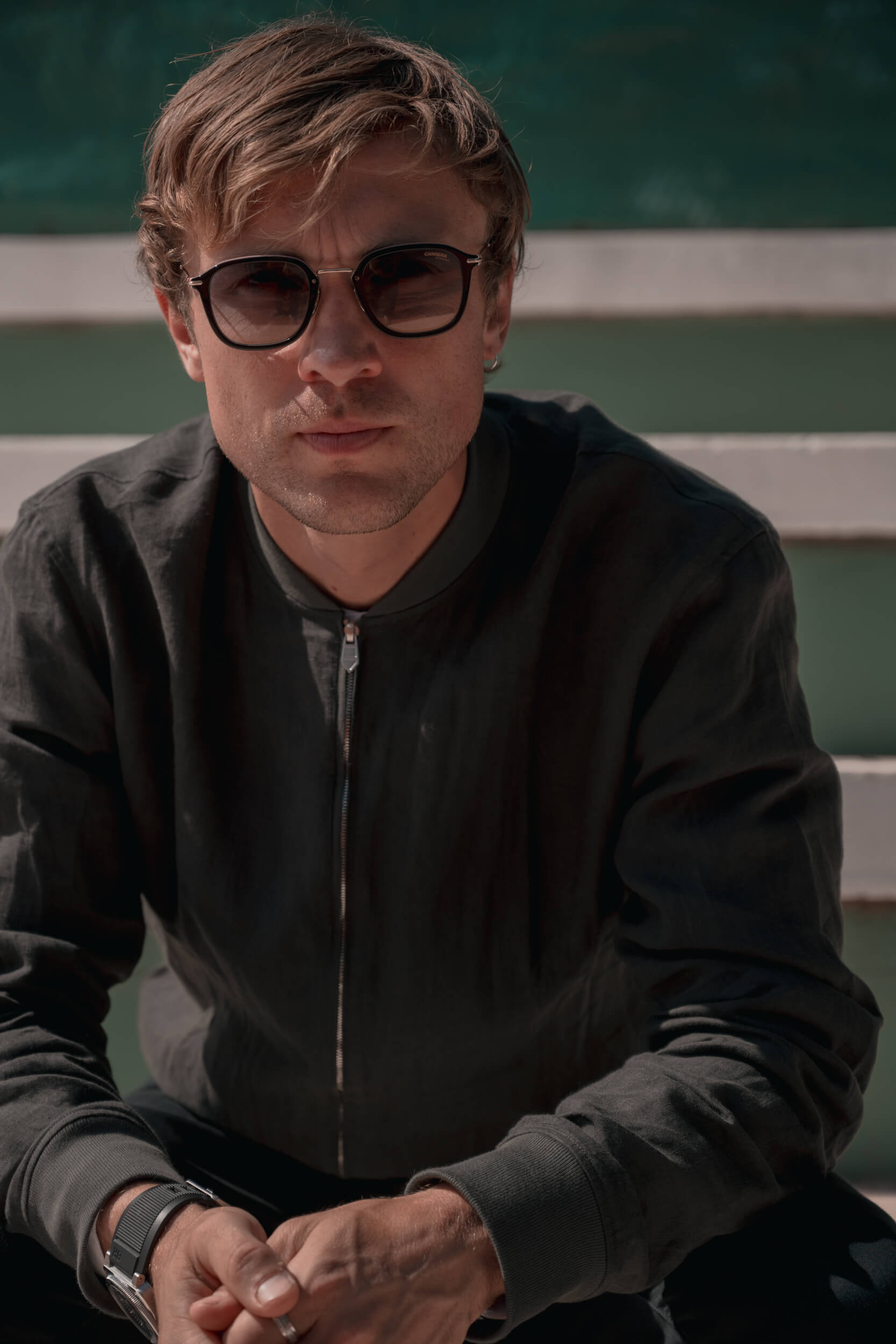
“There’s a world out there, the universe will help you, and you can do good in the world, be around good people, and be yourself, follow your truth.”
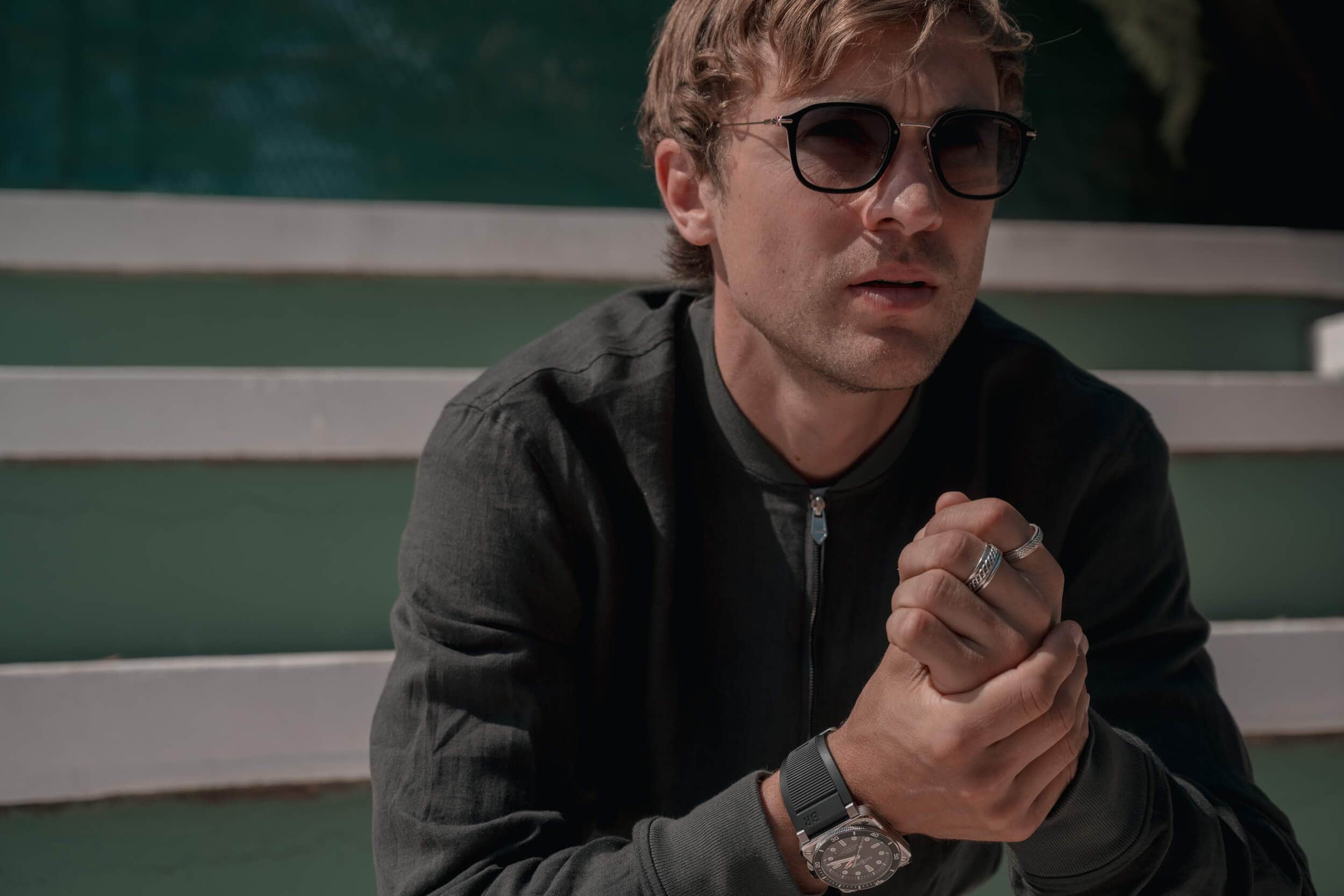
What are you afraid of?
My fears have changed a lot, which is good. Especially being here, and seeing this movie, I was afraid that I wouldn’t do something that I was proud of. I did “Narnia” when I was younger and I’m very proud of this, I’ve done a TV show I’m proud of, but since then, I hadn’t done something that I really liked, and this one’s great, so, now that I’ve done this movie, the fear has left me. Now, I’ve actually done something I’m really proud of. I don’t know what my next fears are going to be [laughs].
Well, that can be a kind of fear, as well, the fear of what the next fears are going to be!
Exactly, that’s right! [laughs] You know, as you get older, you get stronger, and you begin to realize that we’re all just humans living on the Earth, like animals who just go by, and there’s nothing to worry about, nothing to fear, you have to enjoy each moment.
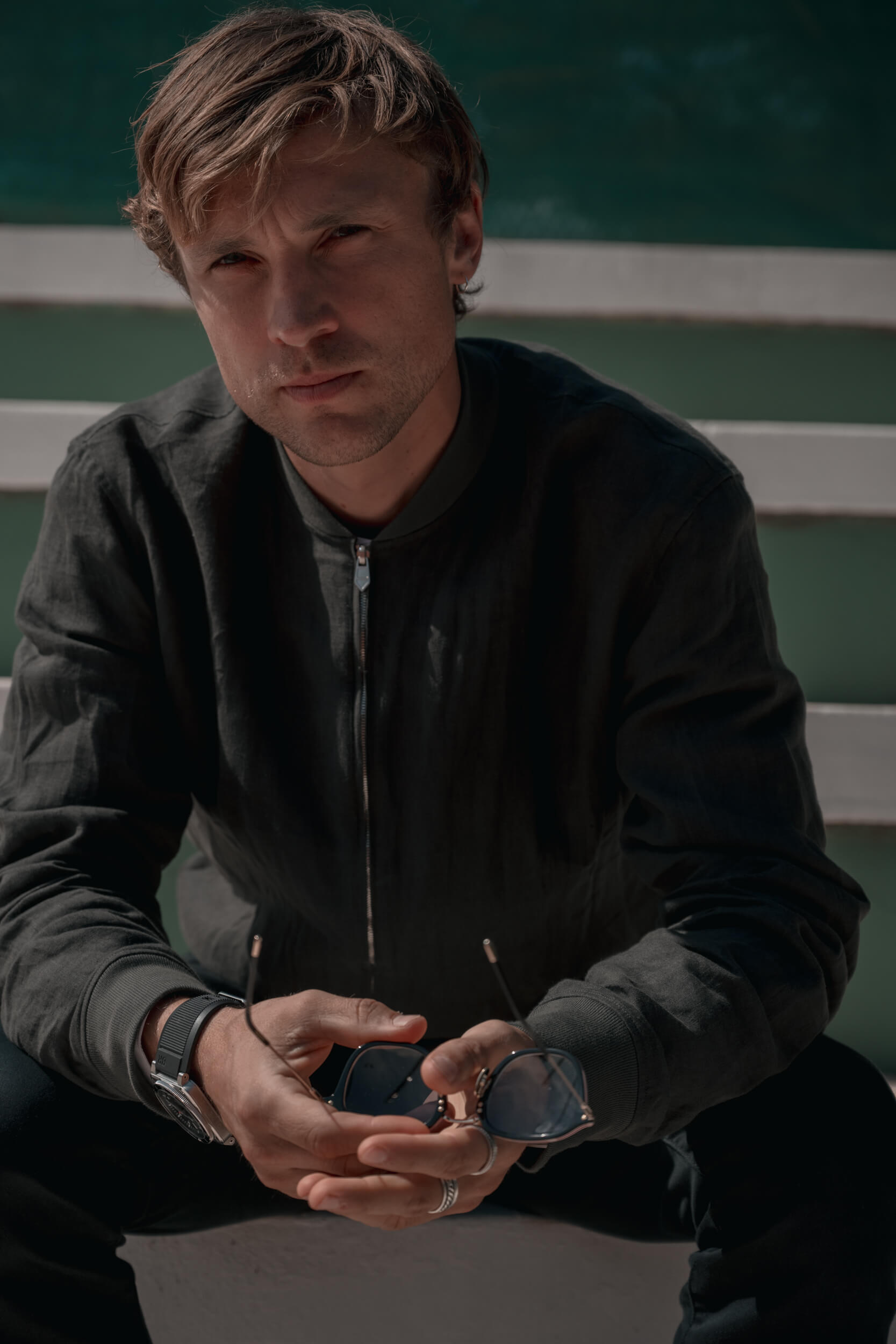
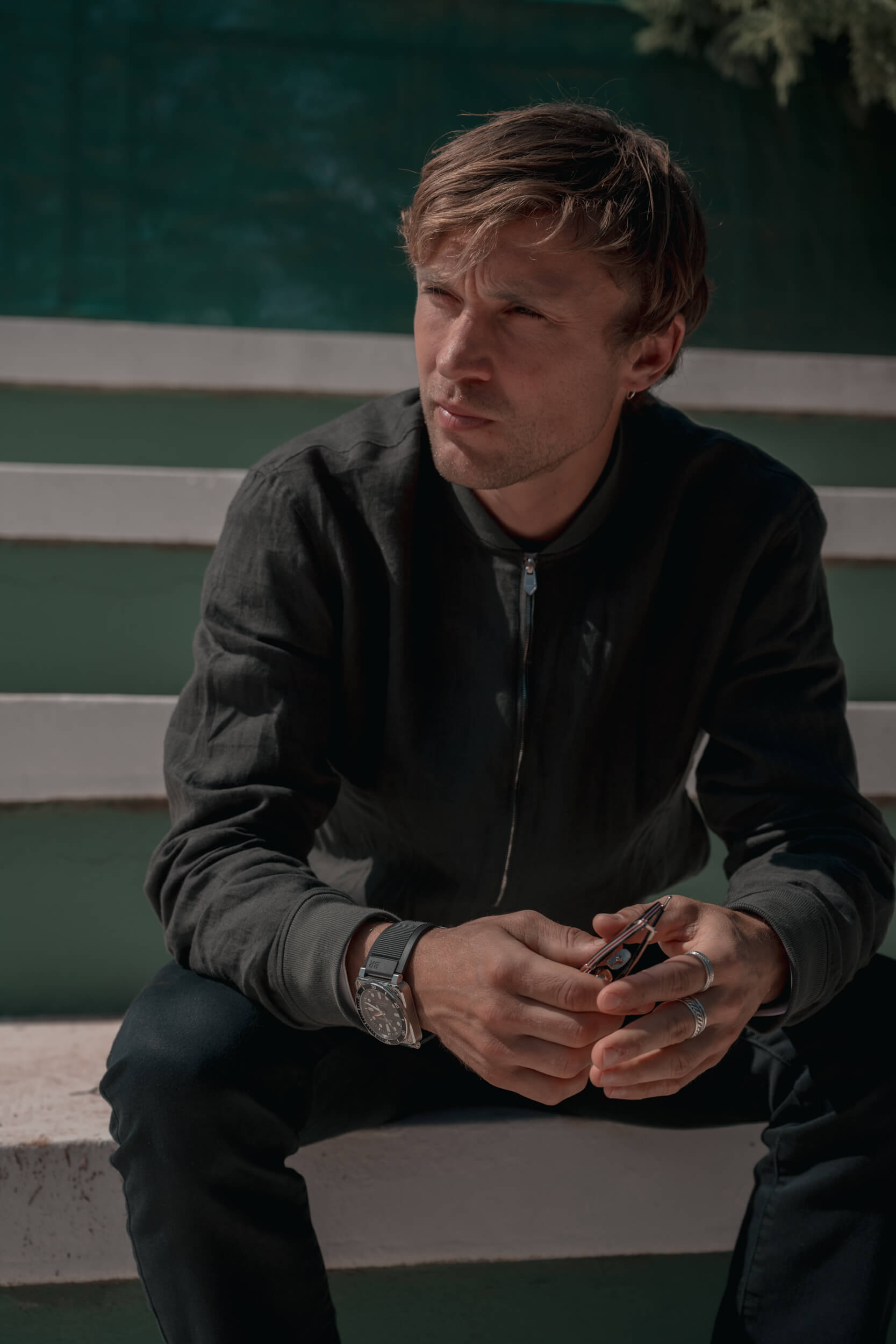
What’s your must-have on set?
I don’t have anything… Sometimes, I just listen to some music, but mostly I just relax, read a book, or chat with some people. Actually, you know what, my must-got is usually my tea! I literally bring tea with me everywhere, it’s really quite sad, sometimes I even bring it to a restaurant because I know the tea is going to be bad, they usually bring me the worst tea imaginable when I ask for it, while everybody else gets a delicious coffee, but I don’t drink coffee, so I just put my own tea bag in the cup and have my own tea. Even here in Italy, I’m in this expensive hotel, and they have the worst tea, so I literally just put my own tea bags in [laughs].
Last question: do you recall your latest dream?
My most recent dream is weird, it’s just like the movie. I had this dream where I was sitting in my grandmother’s house, watching TV or writing something, and then I saw my mother coming up to the kitchen door from outside, carrying a big, gray suitcase; my mom is very small, and she had a mask, and she was struggling with this big suitcase. She collects suitcases, she has 70 of them, and the suitcase of my dream looks just like the one in the movie, that old suitcase. In the dream, I thought, “Why is she stressing herself all the time like this?” My mother was there at the premiere, last night, where I talked about this dream, so I went to her and she said, “It must be causing you anxiety seeing me in anxiety,” and I said, “It is! I wish you would relax!” [laughs] and she said, “Okay, I will change.” So, certainly, my dream about her will now change her life.
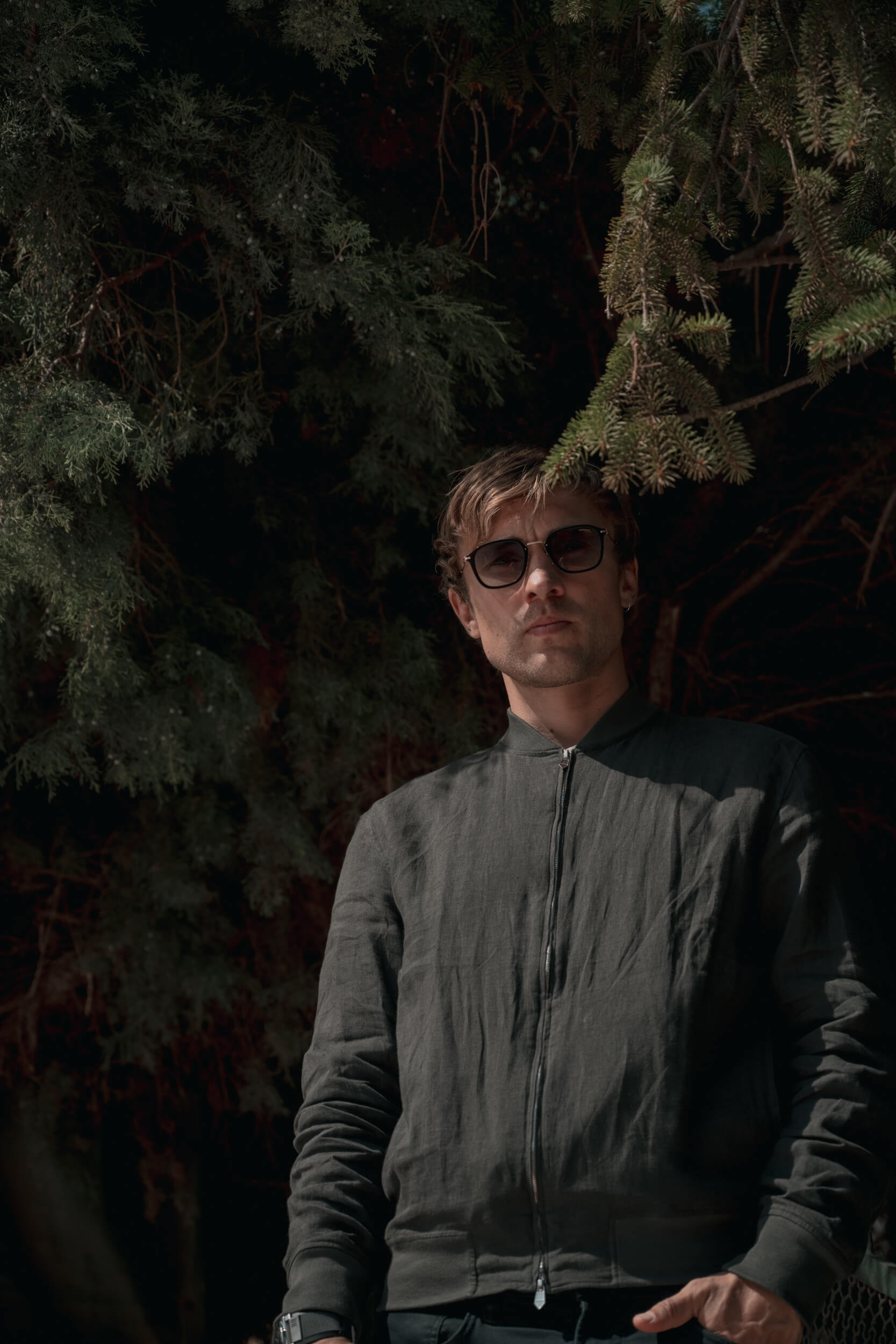
“I literally bring tea with me everywhere.”
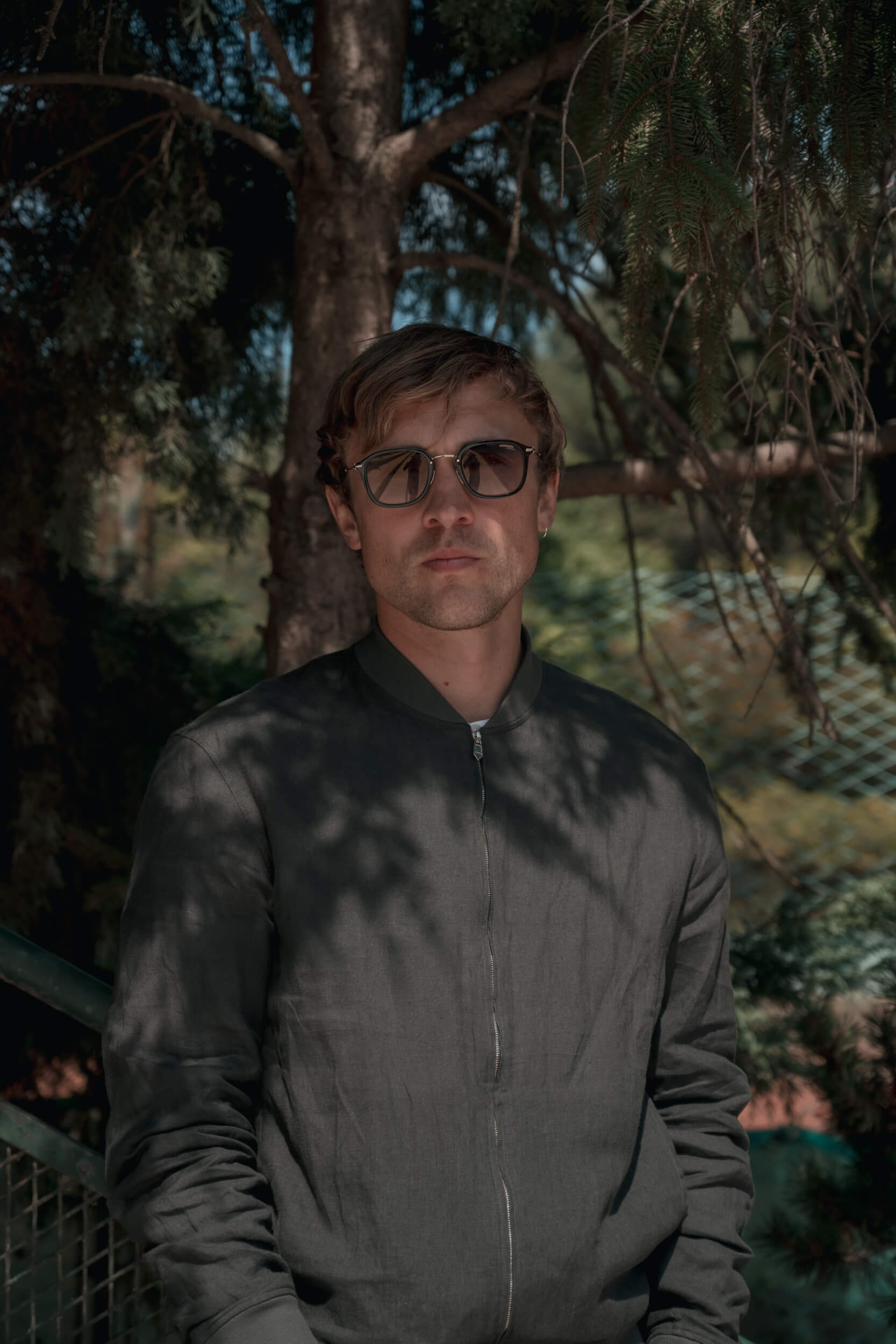
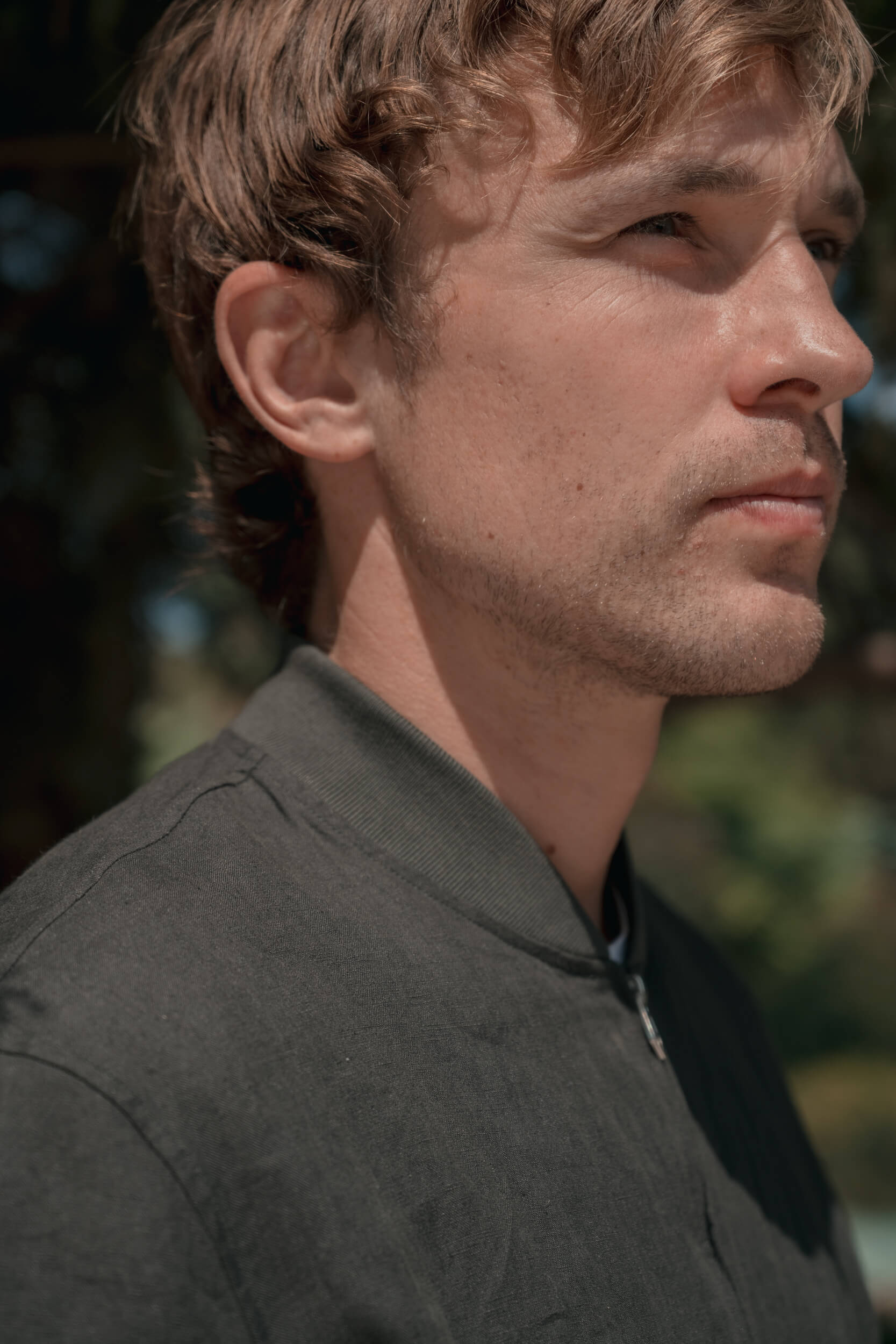
Photos by Johnny Carrano.

